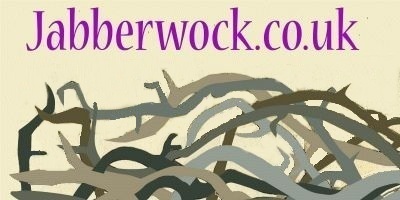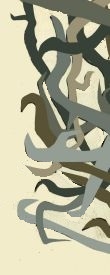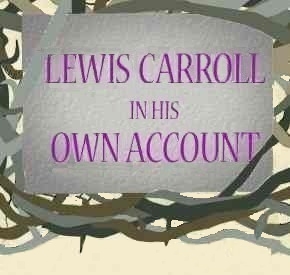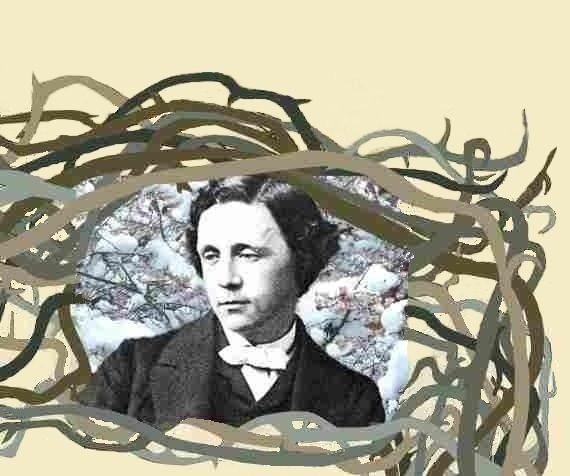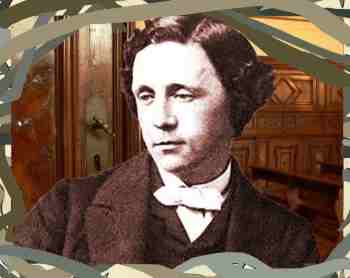![Click for larger [Exterior of Oxford Old Bank in the late 19th Century; click to see larger]](bank_ext_thumb.jpg)
The lists of names and figures, when investigated, illuminate many details of his life: the kind of sums that he spent on printing his pamphlets or paying his washerwoman, the price of his ticket for the 1860 "Darwin" debate between Wilberforce and Huxley, and the sort of fees he charged for providing photographs of peoples' children.
With the help of Edward Wakeling, editor of the complete edition of the Lewis Carroll Diaries, Professor Morton Cohen, author of the standard biography of Lewis Carroll, and the helpful archivisits at Barclays Bank and Christ Church Oxford, the account was transcribed and annotated, and it was published as "Lewis Carroll in his Own Account". The authoritative introduction to this new edition pulls together major points of interest, and notes about those mentioned in the account. The result paints a fascinating, and at times unexpected picture of an unpredictable - and also very likeable - man.
Dodgson's attitudes to money veered wildly
between rigid control and free abandon. His financial situation may
sometimes
have hovered on the brink of catastrophe, but he was generous to a
fault, took his responsibilities to his family very seriously and
he obviously played an important role in their lives. ![Click for larger [Interior of Oxford Old Bank in the late 19th Century; click to see larger]](bank_int_thumb.jpg)
The way he spent his money shows that he detested cruelty, evil and exploitation. He gave to a wide range of charities, most of them humanitarian and some of them dealing with matters which make it plain that Dodgson was no innocent - and (as has become increasingly obvious in recent years) no paedophile either.
His personal attitudes were a curious mixture of
bohemian and moralistic, liberal and conservative; his religious faith
is evident throughout the
document. The account also runs unbroken through the "missing diary
period"
of 1858-62. It casts light on some known events in Dodgson's life
and also hints, intriguingly, at hitherto unsuspected matters and
relationships about which we currently have no further information. ![Click for larger [Page of the bank ledger with details of Charles Dodgson's account; click to see larger]](ledger_thumb.jpg)
Even in his lifetime the account would have been
a secret between
Dodgson and the bank - but now, as the only major document relating to
him which has never been tampered with by outsiders, it is unique.
Entirely factual, it
is also open to much interpretation, and offers a vital, uncensored
glimpse of the real man behind the mythical "Lewis Carroll".
Here's the list of charities and good causes that Carroll is known to have supported. Giving to charity was an important part of his life.
Jenny Woolf
